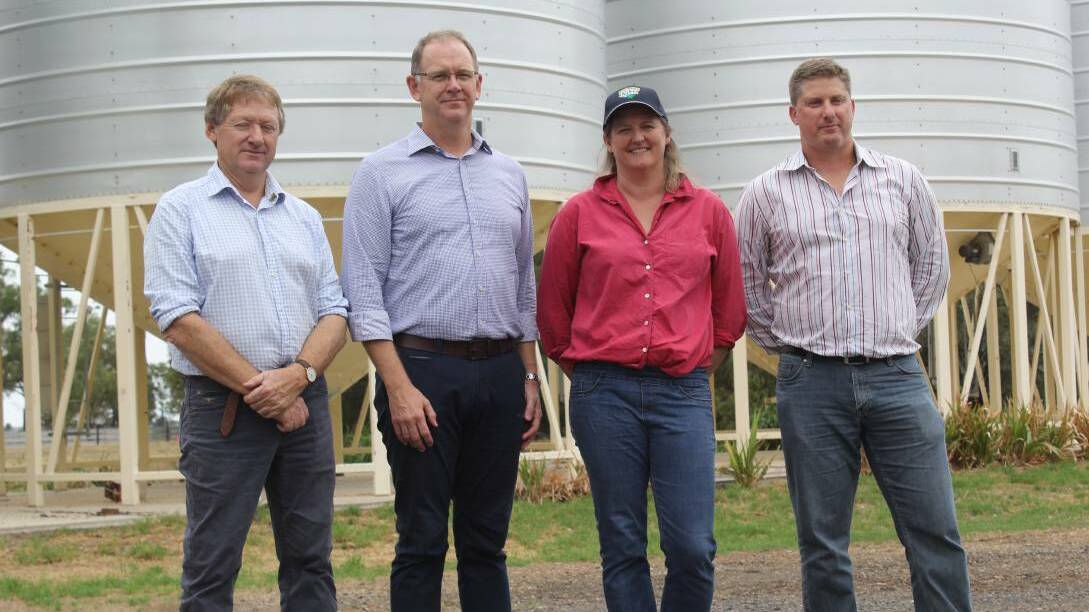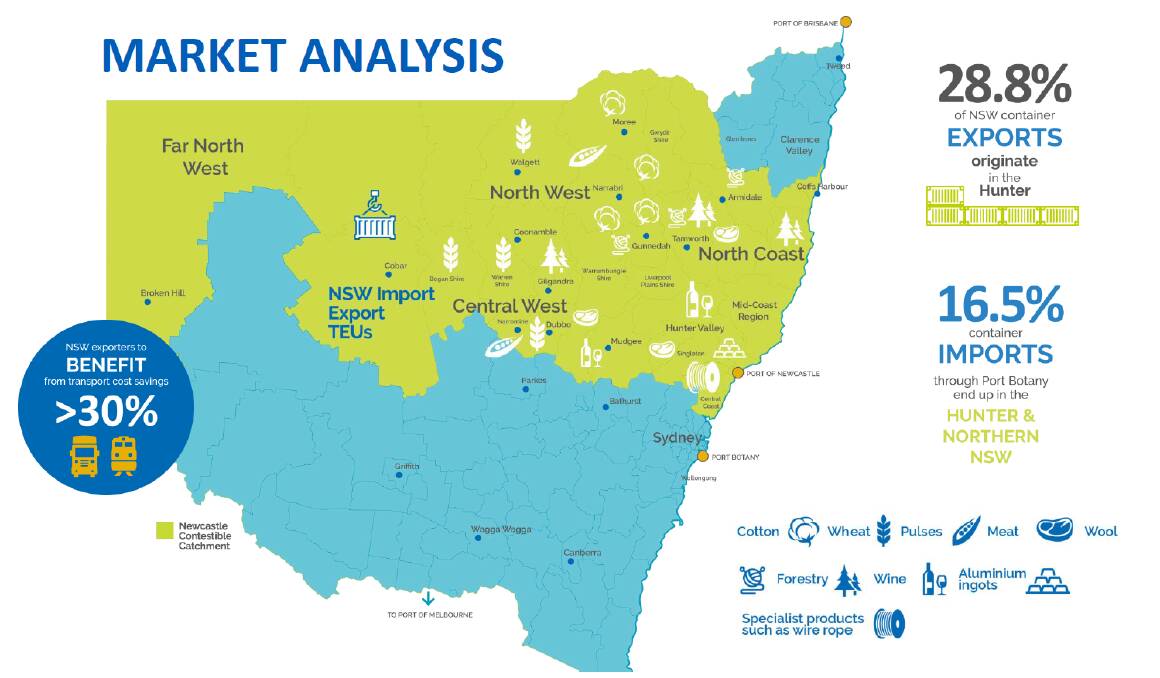
THE GRAINS industry is getting behind a proposed container port at Newcastle which could service the port zone that stretches across NSW.
Subscribe now for unlimited access to all our agricultural news
across the nation
or signup to continue reading
Industry sources believe the new privately funded $1.8 billion facility, to be built on the site of the former BHP Steelworks could save growers in north-west NSW between $12 and $20 a tonne in logistics costs.
Rebecca Reardon, NSW Farmers treasurer and Moree district farmer, said growers in the region were all behind the project.
"It gives us a cheaper option for getting grain to port in containers and that makes us more competitive, we're definitely supportive of the project."
However, while the project has excited growers keen to cut supply chain costs there is a major hurdle in the form of NSW government tariff on every 20-foot container (a normal size for grain cargoes) of $100.
This is due to an arrangement made by the NSW government when it leased both the Port Botany and Port Kembla container ports to protect the income of the businesses leasing the facilities.

Craig Carmody, chief executive of the Port of Newcastle, said while he believed the project was extremely competitive on the open market, an impost of that size would make it difficult.
"It would just be too big a head start."
He said his organisation would be lobbying the newly elected NSW Coalition government to have the tariff provision removed.
Meanwhile, the Australian Competition and Consumer Commission (ACCC) is also taking action in the matter, instituting proceedings late last year against NSW Ports, which runs Botany and Port Kembla ports for what it alleges are anti-competitive agreements with the state government.
"We are alleging that making these agreements containing provisions which would effectively compensate Port Kembla and Port Botany if the Port of Newcastle developed a container terminal, is anti-competitive and illegal," ACCC chair Rod Sims said.
Mr Carmody said a Newcastle made sense for the north-west of the state and added it would have little input on grain throughput for the other ports.
"We will be relying on the natural catchment in the region that has supplied the bulk grain terminal, it will mean grain does not either have to go all the way down to Port Botany, which is a long journey with a lot of inefficiencies, or be road freighted up to the Port of Brisbane, which is where most of the containers are going at present.
Even though northern NSW has endured back-to-back tough seasons Mr Carmody said he saw a lot of potential for the container market out of Newcastle.
"The long-term trend is for more exports to go out in containers and even in the droughts we have seen grain produced in the region, so we see good prospects."
A director of Moree-based co-operative GrowerCo, Charles Brett, welcomed the move.
"It really is a no-brainer, it would be a fantastic addition to our area and allow us to really get involved in the high value container market into places like Asia," Mr Brett, also a grower at Moree, said.
"We have an under utilized, excellent rail network connected to the port, this is not a pie in the sky project, it can really work, especially for exports such as chickpeas, where customers increasingly want containers rather than bulk shipments."
However, he slammed the NSW government for what he described as "Sydney-centric" policies.
"How the government supposedly in favour of business could have signed such an anti-competitive deal is beyond me," Mr Brett said.
"Naturally the operator of Botany and Kembla will protest against change, as would I in their situation but this is something we just need to get sorted out."
Mr Brett said he had not been heartened by correspondence with the government, which said it intended to continue to focus on Port Botany as the state's major container port due to its central location.
"The state government needs to govern for all, not just those in the Sydney basin," he said.
"Why should we alone in the north-west bear the costs for inefficient supplie chains when there is an alternative out there that doesn't even require government funding to get it up and running?"
Mr Carmody said the existing upcountry infrastructure, much of it in place to service coal exports, meant the project would not require a mountain of capital expenditure to get up and running.
"A lot of this can be done using connections that are already there, we've spoken to exporters and shipping lines and they are supportive, it is just a matter of getting the ball rolling."
He said the company had recently toured north-west NSW and met with various grower groups, with the project receiving positive feedback.


